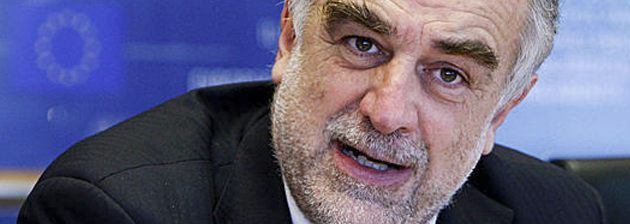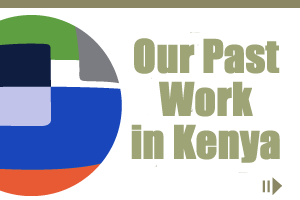(December 17, 2010) “The Kenyan media by and large played a responsible role during Kenya’s post election violence crisis,” says the chairperson of the Editors’ Guild in Kenya, Macharia Gaitho.
Gaitho says the indictment of a journalist by the International Criminal Court (ICC) might cause some to pass judgment on the Kenyan media as a whole. “Not so,” says Gaitho, “it’s the indictment of an individual journalist.”
For Henry Maina, East Africa Director of Article XIX, a human rights group campaigning for freedom of expression, it is a moment the media should seize to concretize plans for better self-regulation.
“This is a call to the media to realize how much impact their words can have,” says Maina, adding that those reporting on the matter should take note that the journalist, like the other five indicted for Crimes Against Humanity, is “of course innocent until proven guilty.”
On December 15, ICC Prosecutor Luis Moreno Ocampo put two cases to the Court, naming six individuals who would be tried in The Hague, for their alleged role in masterminding the post election violence in Kenya in late 2007 and early 2008.
With the announcement of the names, the news itself became news: it was the first time since the establishment of the ICC that a journalist had been indicted. In December 2003, the International Criminal Tribunal for Rwanda found three journalists guilty of hate media during the 1994 genocide.
In naming the Head of Operations and talk show host at Kass FM, Joshua Arap Sang, as one of those suspected of masterminding attacks on their political opponents, the Prosecutor said “Sang played a crucial part in the violence in 2007 and 2008, planning attacks with two other accused.”
Ocampo was asked today, only two days after the announcement why he’d said in May that no journalist was indicted. Mark Okundi, a manager from a vernacular radio station in the Rift Valley, Radio Namlolwe, was interviewing the Prosecutor as part of a dialogue between community and vernacular radio journalists and the ICC, facilitated by Internews Kenya.
Listen to the interview:
The Prosecutor said new evidence suggested the indicted journalist was involved in the planning of attacks, and used the radio to pass on coded messages.
Shortly after his name was announced, Sang responded in the media with appeals to his listeners to remain calm, saying he was confident of his innocence.
A disputed election result in late 2007 led to violent attacks in Kenya’s Rift Valley and in the capital, Nairobi. By the time leaders signed a power sharing agreement two months later, 600 000 people had been displaced. The death toll: more than a thousand people. Media observers and monitors had singled out certain vernacular radio stations in Kenya for contributing to ethnic animosity through hate speech.
In response to this, Internews in Kenya designed a series of interventions for media capacity building, using a conflict sensitive journalism training approach to help reporters tell the stories of Kenya’s political strife and its journey towards reforms. Kass FM, where the indicted journalist hosts a popular news talk show, is a partner station in this training program. The station has acknowledged the value of this storytelling approach, which emphasizes the careful use of words and counters ethnic stereotyping.
“The media in Kenya is incredibly diverse,” says Internews Africa Director, Deborah Ensor. “There are scores of award winning journalists based in the capital, Nairobi, and there are also many radio stations. Some of the media struggled when confronted with the pressures of reporting on the political crisis. To address their needs and to help journalists keep an independent stance, we designed a program, which shows them how factual, balanced reports make for more credible storytelling.”
Editors and journalists at Kass FM have said they valued the guidance about how to balance political views.
Tom Rhodes, an East Africa based consultant for the Committee to Protect Journalists (CPJ), a media freedom advocacy organization, says when he heard that a journalist was indicted, his first fear was that the Kenyan government might turn this into a crackdown on the media. “On the flip side, it may just have the effect of firmly cementing the sense of what a huge responsibility it is to have your voice on the air waves.”
Henry Maina believes the message the indictment sent, coupled with the guidance towards more conflict sensitive storytelling, represents movement forward for the Kenyan media. “It is not the media as a whole that stands accused,” says Maina. He says many journalists did a lot of introspection after the post-election violence; journalists are taking responsibility for what they say.
Internews Land and Conflict Sensitive Journalism program in Kenya has partnered with community and vernacular radio stations in Nairobi and the Rift Valley to give editorial support to journalists and editors. The program, supported by USAID’s Conflict Mitigation and Mediation program, is aimed at building the capacity of this sector of the media to track political reforms in Kenya and to use a conflict sensitive journalism approach when reporting on political differences.




